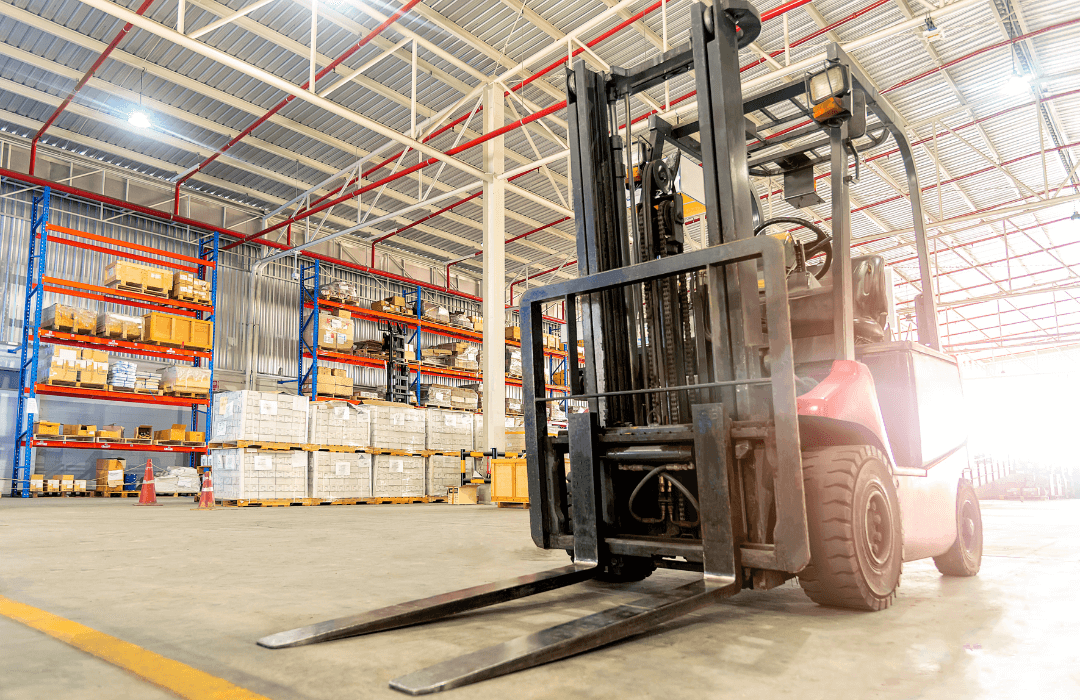Forklift Injuries and Your Rights Under Pennsylvania Workers’ Compensation

Forklifts are essential pieces of industrial equipment used in many workplaces across Pennsylvania, including warehouses, distribution centers, construction sites, and manufacturing plants. Designed to lift, move, and transport heavy loads, forklifts improve efficiency and reduce the physical burden on workers. However, they also carry significant risks. Improper use or unsafe conditions can cause serious forklift injuries. These accidents may result in life-changing harm and, in the most tragic cases, death. If you or a loved one has been hurt in a forklift accident at work in Pennsylvania, it’s important to understand your rights under the state’s workers’ compensation system.
Am I Covered Under Workers’ Compensation?
If you were injured while operating a forklift or struck by one at work, you are most likely covered under Pennsylvania’s Workers’ Compensation Act. This no-fault system provides medical benefits and wage-loss compensation to employees injured in the course of their employment, regardless of who was at fault.
To qualify for benefits, your injury must have occurred while performing work-related duties. Coverage applies to full-time, part-time, and seasonal employees.
What Benefits Are Available for Forklift Injuries?
A forklift injury can create serious physical and financial challenges. Pennsylvania’s workers’ compensation system offers several benefits to help injured workers recover and support their families.
Medical Benefits
Workers’ compensation covers all reasonable and necessary medical treatment related to your forklift injury. This may include:
- Emergency care
- Surgeries
- Physical therapy
- Prescription medications
- Follow-up visits
- Medical equipment
If your employer has posted a list of approved healthcare providers, you may be required to treat with one of those providers for the first 90 days.
Wage-Loss Benefits
If your forklift injury prevents you from working, either temporarily or permanently, you may qualify for wage-loss compensation. Benefits are generally equal to two-thirds of your average weekly wage, subject to a maximum set by Pennsylvania law. You may also be eligible if you return to work in a limited capacity at reduced pay. Compensation can apply to both past and future lost wages if your earning capacity is affected long-term.
Types of Forklifts in Pennsylvania Workplaces
Not all forklifts are the same. Employers use different types depending on the environment, load, and terrain:
- Counterbalance Forklifts – The most common type, designed with forks in the front and a counterweight in the back.
- Reach Trucks – Extend forward to lift loads to greater heights, often in warehouses.
- Pallet Jacks – Smaller forklifts used for moving pallets short distances.
- Side Loaders – Ideal for carrying long, bulky materials by lifting from the side.
- Rough Terrain Forklifts – Built for outdoor use, with large tires and heavy-duty engines to handle uneven surfaces.
- Order Pickers – Allow operators to be lifted with the load to retrieve items from high shelves.
Common Forklift Accidents in Pennsylvania Workplaces
Forklift accidents can happen in many ways, often resulting in severe injuries:
- Tip-Overs and Rollovers – Caused by speeding, uneven surfaces, or unbalanced loads. These accidents often result in crushing injuries.
- Collisions with Other Vehicles – Common in warehouses and loading docks, often due to miscommunication or distracted operation.
- Collisions with Pedestrians – Workers on foot face serious risks if struck by a forklift, especially in poorly lit or congested areas.
- Falling Loads – Improperly secured or stacked loads can fall, causing head injuries, lacerations, or fatal crush injuries.
- Mechanical Failures – Poor maintenance can lead to brake failures, steering issues, or hydraulic malfunctions, putting both operators and coworkers in danger.
What to Do After a Forklift Injury
If you are hurt in a forklift accident at work, take the following steps to protect your health and your workers’ compensation claim:
- Report the injury immediately – Pennsylvania law requires notice within 120 days, but sooner is better.
- Seek medical treatment – Use your employer’s approved providers if required during the first 90 days.
- Document everything – Keep records of medical visits, lost wages, and all communications.
- Consult an attorney – A workers’ compensation lawyer can help you file properly, ensure benefits are calculated correctly, and fight claim denials.
You Have Rights—Let Us Protect Them
Forklift accidents can have life-altering consequences. If you’ve been injured in a forklift accident at work in Pennsylvania, you should not face the workers’ compensation process alone. At Stern & Cohen, The Workers’ Compensation Lawyers, we are dedicated to protecting injured workers and making sure they receive the benefits they deserve.
Contact us today for a free consultation and let us fight for your future.

